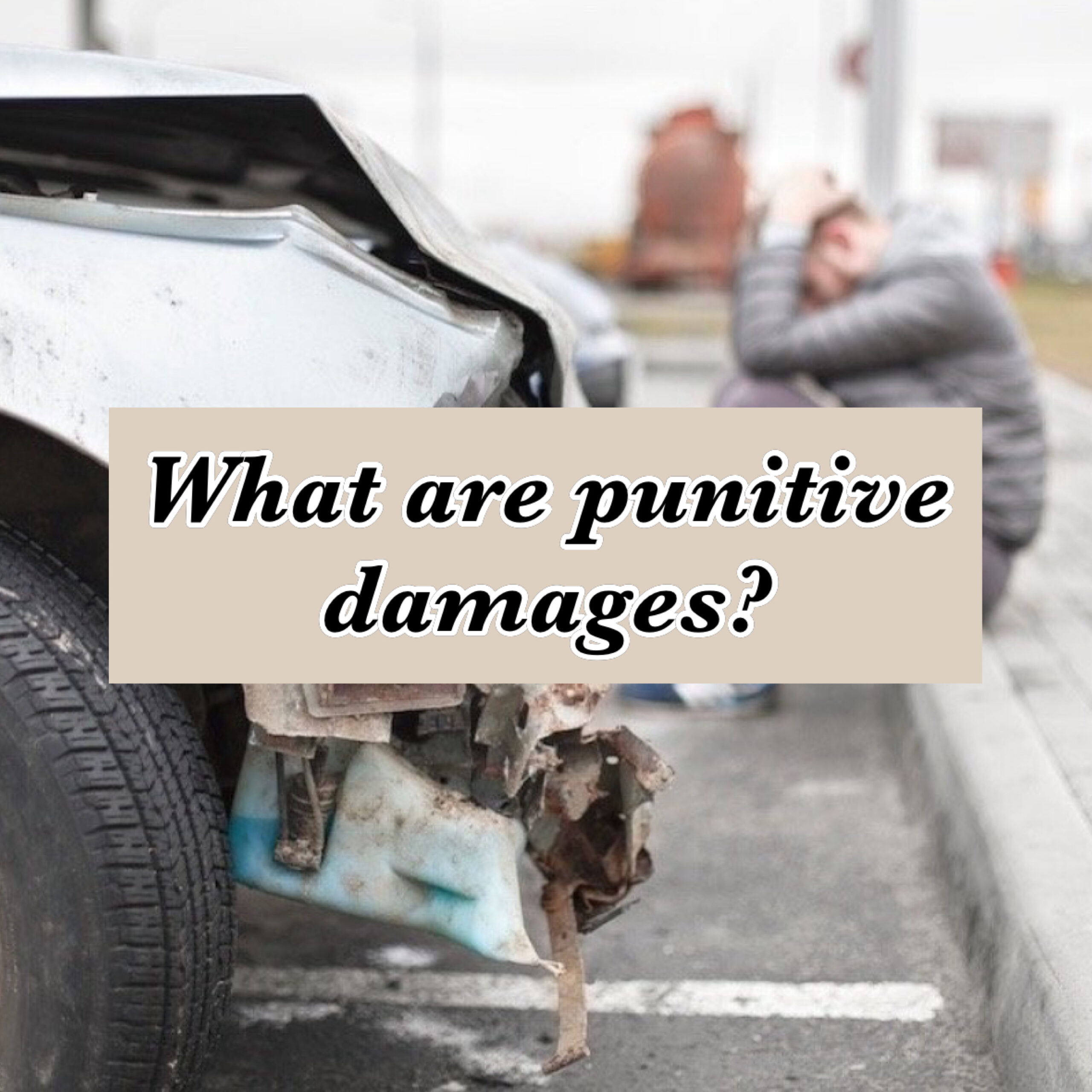If you were injured in a car accident, you may have heard the term “punitive damages” and wondered how they apply to your case. People often confuse punitive damages with pain and suffering — but the two are not the same, and they play very different roles in a personal injury claim.
Let’s break it down…
What Are Punitive Damages?
In North Carolina, punitive damages are not awarded to compensate the victim for their injuries — they are awarded to punish the at-fault party for egregiously wrongful acts and to deter others from doing the same. According to North Carolina General Statute § 1D-1, punitive damages may be awarded in cases where the defendant’s conduct was especially reckless or intentional.
Common examples where punitive damages may apply:
- The at-fault driver was driving under the influence of alcohol or drugs
- The driver was excessively speeding or racing
- The driver knowingly ignored traffic signals or engaged in reckless behavior
- There was a history of similar violations or prior offenses
Punitive damages are not available in every case. They require a higher burden of proof and are typically reserved for the most severe cases of misconduct.
What About Pain and Suffering?
Pain and suffering refers to the physical, emotional, and psychological impact of the accident on your life. This is separate from punitive damages and is compensatory in nature — intended to help you recover from what was lost or harmed.
Pain and suffering may include:
- Loss of enjoyment in activities you previously loved
- Emotional distress, anxiety, or depression
- Physical pain and discomfort
- Sleep disturbances or post-traumatic stress
- Inability to care for a loved one or participate in daily routines
Unlike punitive damages, pain and suffering can be claimed in most personal injury cases, even if the at-fault driver wasn’t acting maliciously or recklessly.
Can You Claim Both?
In some cases, yes — both pain and suffering and punitive damages may be available. For example, if you were hit by a drunk driver and sustained serious injuries that left you unable to return to work or care for your family, you may have grounds to pursue both.
However, proving punitive damages is more difficult and requires clear and convincing evidence of the at-fault party’s egregious conduct. This is why it's important to work with an attorney who knows how to build a strong case and present your claim effectively.
Why Legal Guidance Matters
Determining the full value of your personal injury case — including whether punitive damages may apply — isn’t always straightforward. Every case is unique, and the insurance company isn’t going to offer more than they absolutely have to. That’s where an experienced attorney can make a real difference.
At Shankle Law Firm, we’ve helped injured clients across North Carolina recover the compensation they deserve after serious car accidents. Maggie Shankle is a Board-Certified Workers’ Compensation Specialist and a skilled personal injury attorney who knows how to navigate complex claims and stand up to insurance carriers.
Talk to the Shankle Law Team Today
If you’ve been injured in a car accident and think you may be entitled to pain and suffering or punitive damages, don’t try to handle it alone. Contact Shankle Law Firm for a free consultation at (704) 370-1212. We’ll listen to your story, explain your legal options, and help you take the next step with confidence.
*Please Note - The content on this website is for informational purposes only and does not constitute legal advice. Viewing this site, using information from it, or communicating with Shankle Law Firm, PA through this site does not create an attorney-client relationship. For legal advice tailored to your situation, please contact us directly at (704) 370-1212.

